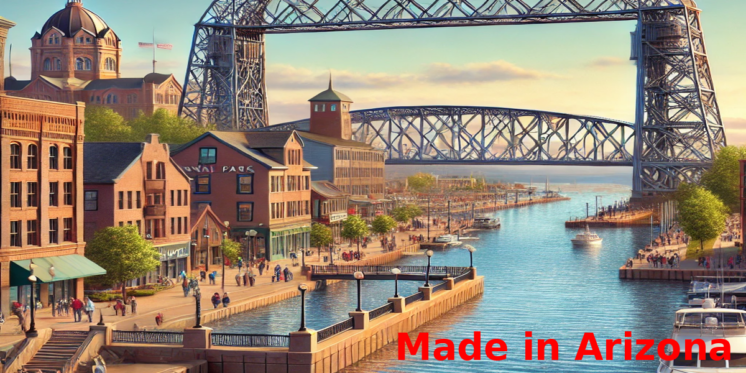Duluth deserves better than a mismanaged tourism marketing contract
 The city of Duluth is at a crossroads with its tourism marketing. After years of underwhelming performance from an out-of-town marketing firm, city leaders promised a better process and outcome this time.
The city of Duluth is at a crossroads with its tourism marketing. After years of underwhelming performance from an out-of-town marketing firm, city leaders promised a better process and outcome this time.
City mismanagement, however, undermined that commitment. A poorly-planned and hastily-executed request-for-proposal process, confusing guidance and unnecessary delays have left Duluth with a troubling outcome: A recommendation to hire another out-of-town agency with no knowledge of the city’s tourism industry and significant client conflicts to lead Duluth tourism marketing for the next two years.
It raises the obvious question: Does the current contract and contracting process raise too many red flags to move forward without further scrutiny?
The city administration recently recommended city council approval of a two-year, $3.6 million tourism marketing contract with Madden Media, an Arizona-based agency. This decision has sparked significant pushback from the Duluth business community, with many questioning not only the choice of vendor but also the selection process.
The concerns are real. The new agency also markets Destination Door County, which directly competes with Duluth for visitors from Minneapolis-St. Paul, Madison, Chicago and other destinations. These regions overlap with Duluth’s tourism marketing because campaigns target many of the same audiences, creating a direct conflict.
The chart below shows annual Google searches for Door County from the Twin Cities designated market area. Duluth competes for these same Twin Cities visitors, hoping to turn their heads (and wallets) toward Duluth. Tourism audiences are finite, and we risk losing thousands of prospective visitors to competing markets represented by the same marketing agency.
Yes, some percentage of Door County loyalists may not be swayed to visit Duluth. However, there is substantial interest among frequent travelers for Great Lakes activities (like Great Lakes fishing, beaches, camping, vacations, snowmobiling, skiing, etc.) emanating from the Twin Cities, Chicago, Indianapolis, South Bend, Milwaukee and in other overlapping audiences. How will a dual representation agency decide which destination gets top billing for classic Great Lakes activities? How can an agency loyal to multiple destinations prioritize other clients’ success without compromising Duluth’s? Duluth deserves an agency fully devoted to Duluth.
Tourism, of course, is a cornerstone of Duluth’s economy, with an estimated economic impact of $1 billion annually. Success depends on a well-executed strategy driven by singularly devoted marketing professionals who understand the city and its unique offerings. Residents, business owners and city council members now face a critical decision — to accept a flawed process and outcome or take the time to correct course. A reset is possible, with February providing sufficient time for a new agency to launch a fresh start singularly focused on and loyal to Duluth.
The mayor is not involved(ish)
The city of Duluth has posted information about its tourism marketing working group on the city’s website. Mayor Roger Reinert is cited no fewer than 10 times outlining authority and control. Now, the mayor says he had nothing to do with choosing the final decision-making panel. Instead, selection of the panel is pinned on retiring City Administrator David Montgomery, the mayor’s top deputy.
In addition, the rest of the selection committee itself lacked big-ticket marketing expertise. Volunteers, mostly with limited experience in high-investment tourism marketing, were appointed to select a vendor for a $3.6 million contract. No restaurants, hotels or privately held commercial attractions were represented on the final selection committee.
If this is how city road construction projects are handled, we’re all in trouble. Since an accountant (Montgomery) selected the Duluth International Airport Authority executive director and a group of non-marketers to lead the tourism decision, perhaps the city should let marketers award the next airport runway contract and prepare Duluth’s 2025 tax reconciliations.
Duluth’s tourism marketing is more than just a contract. It’s about how the city presents itself to the world, attracts visitors and supports the local economy.
The tourism RFP was mismanaged
The city began this process later than it should have, setting the stage for a cascade of problems. The original RFP provided limited time for firms to respond and lacked key details, such as marketing analytics from previous campaigns. Marketers need this data to make informed recommendations for the next round of tourism marketing.
The city then scrapped the first RFP without explanation. It produced a second RFP that reduced the annual marketing budget to $1.8 million from $3 million, without explanation, and imposed an even tighter deadline for responses. During finalist interviews, city representatives contradicted each other on basic questions, such as who would bear responsibility for printing and distributing the annual Duluth visitor’s guide. These missteps and others created unnecessary confusion, casting doubt on the selection process.
Despite promises by the mayor to favor Duluth-based marketing firms to tell Duluth’s tourism story, the evaluation matrix barely prioritized local agencies, spotting them only five of 100 points over other Minnesota firms and just 10 over national competitors. This minimal advantage undermined the mayor’s oft-stated public assurances as a candidate, and once in office, that local agencies were best suited to tell Duluth’s story.
The selection process, repeatedly touted by Montgomery as “blind,” was not. All proposals reviewed were clearly branded by the submitting agencies, and finalist interviews were face-to-face. An in-person interview is not blind.
In addition, Montgomery owes the Duluth marketing agency industry an apology for clearly inferring there is no “local capability to carry out this work.” We have multiple agencies in Duluth that represent global brands, which spend hundreds of millions of dollars annually on their marketing campaigns.
Stepping back from the brink
Duluth has barely had a functioning agency partner for years. Given this history, there’s no need to rush. Duluth can afford to pause and re-evaluate its options. Choosing the right agency matters far more than sticking to a timeline imposed and already compromised by wasted time.
Tourism is vital to the city’s economy, and it deserves an approach rooted in local expertise. False deadlines should not dictate decisions that will shape the city’s future. Any mismanagement should not pressure the city council to rush a decision. Taking a little extra time now could save Duluth from significant problems later.
Fixing the mess doesn’t require drastic measures — just a little more time. February is a practical target for implementing a better solution. City council members have the authority to press pause and demand a fairer, more thorough process. The stakes are too high to let this opportunity slip away.
The right long-term agency selection is essential to ensuring growth of Duluth tourism, an industry on which the city depends for its economic well-being and growth. A rushed or flawed decision jeopardizes a $1 billion-a-year driver of the local economy that impacts local business and residents.
Recommended Links:
Leave a Comment
Only registered members can post a comment , Login / Register Here
















1 Comment
Duluthsocialenclave
about 1 month ago